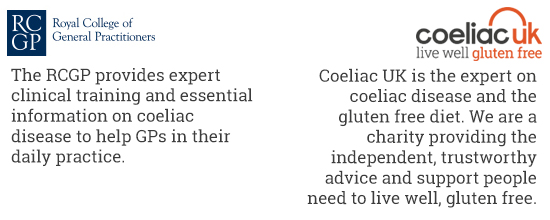Why testing IBS patients for coeliac disease is important

As the symptoms of IBS are often similar to those of coeliac disease, the RCGP and Coeliac UK are both working to support you in picking up more patients who have not been investigated for coeliac disease.
Although coeliac disease affects 1 in every 100 people 1, in the UK only 30% of these patients are diagnosed 2, while 1 in 4 have first been treated for irritable bowel syndrome (IBS).3
NICE recommends that anyone being considered for a diagnosis of IBS should first be tested for coeliac disease. 4, 5
You can also increase the pickup rate within your practice population by running individual searches on patients with:
• Type 1 diabetes mellitus
• Autoimmune thyroid disease.
Any patient with mildly abnormal iron studies, vitamins or full blood counts who have been complaining about diffuse abdominal symptoms could be offered tissue transglutaminase (tTG) IgA testing on their next visit.
Learn more about identifying, diagnosing and managing coeliac disease by completing the RCGP coeliac disease learning module here.
1. NHS UK. Coeliac disease. Available from www.nhs.uk/conditions/Coeliac-disease: last accessed December 2015.
2. West J et al. Am J Gastroenterol. 2014; 109:757–768; doi:10.1038/ajg.2014.55.
3. Card TR et al. Scand J Gastroenterol. 2013; Early Online, 1–7; doi:10.3109/00365521.2013.786130.
4. National Institute for Health and Care Excellence. Coeliac disease: recognition, assessment and management (NG20). 2015. London: National Institute for Health and Care Excellence.
5. National Institute for Health and Care Excellence. Irritable bowel syndrome in adults: diagnosis and management (CG61). 2008. London: National Institute for Health and Care Excellence.
Sponsored by an educational grant from Thermo Fisher Scientific
